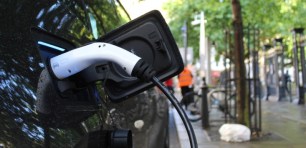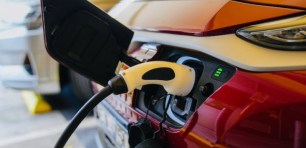
Source: Unsplach/Andrew Roberts.
New South Wales is headed to the polls in eight short weeks as Premier Dominic Perrottet fights to retain over a decade of reign for his Liberal government, but it hasn’t yet shaped up to be an election hard-fought over electric vehicle (EV) policies.
It seems the Liberals are more focused on fending off a Climate 200 challenge than Labor’s somewhat demure green-machine credentials, with Teal independents muscling in on several key seats — including Climate Minister James Griffin’s seat of Manly.
But with the transport industry accounting for a fifth of the country’s total emissions, which of the two major parties in Australia’s most populous state has a better electric vehicle policy? Let’s delve in.
Millions pledged for EV charging
Last March, NSW Labor announced $10 million to fund the rollout of electric vehicle charging outlets, covering at least 50 charging stations in the state.
“What we see in NSW is stagnation of electric vehicle policy. What Labor is willing to do is put $10 million on the table to ensure we have infrastructure around the state,” innovation spokeswoman Yasmin Catley said at the time.
In June last year, the Liberals returned serve. The government announced $38 million for charging infrastructure, bringing the state’s EV investment to $633 million under the NSW Electric Vehicle Strategy.
“Rolling out extra chargers will allow more EV drivers to benefit from their cheaper running costs and a cleaner, quieter and more sustainable road network,” Treasurer and Minister for Energy Matt Kean said in June.
The $38 million was broken up into: co-funding 500 kerbside charge points ($10 million); co-funding EV chargers in around 125 medium and large apartment buildings ($10 million); and increasing the number of charging points from four to eight in busy areas.
Then in October, Kean upped the ante. He announced the NSW government plans to invest $39.4 million in the first round of Fast Charging Grants to be built on highways and inner city sites in the next two years.
Kean said the investment would co-fund 86 new fast and ultra-fast EV charging stations alongside successful private sector applicants Ampol, BP, Evie Networks, Tesla, the NRMA and Zeus Renewables.
“This investment will see the largest, fastest and most comprehensive public EV charging network in Australia,” Kean said.
“Each of these stations will contain a minimum of two ultra-fast EV charging bays of 350kW capacity, and two fast charging bays of 175kW, with some stations containing up to 15 bays.”
It’s impressed the industry. The Electric Vehicle Council applauded the NSW government for its speed to embrace renewable technology on our roads, calling the state a leader among the country’s jurisdictions.
“The NSW Government has been quicker than others to recognise if you want to hit proper emission reduction targets you need strong measures to transition to electric vehicles,” CEO Behyad Jafari said.
“For the past two years they have been the Electric Vehicle Council’s top-rated state in terms of policy action to support EV take up.”
As it stands, climate expert and former climate and energy program director at The Australia Institute Richie Merzian believes the NSW government has a better EV policy than the Andrews Labor government in Victoria, let alone the state opposition.
“I do think the NSW Liberals’ Matt Kean has gone out of his way to build a broad church coalition to create renewable energy zones, push ahead with targets, and create a much better electric vehicle policy than NSW Labor,” Merzian said.
“Right now, the NSW election doesn’t seem like a competition of ideas on climate, it seems like a concession to the Liberal leadership to date.”
Handpicked for you

‘No downside’: Game-changing EV salary sacrifice policy sees Tasmanian firm cash in on FBT exemptions



COMMENTS
SmartCompany is committed to hosting lively discussions. Help us keep the conversation useful, interesting and welcoming. We aim to publish comments quickly in the interest of promoting robust conversation, but we’re a small team and we deploy filters to protect against legal risk. Occasionally your comment may be held up while it is being reviewed, but we’re working as fast as we can to keep the conversation rolling.
The SmartCompany comment section is members-only content. Please subscribe to leave a comment.
The SmartCompany comment section is members-only content. Please login to leave a comment.